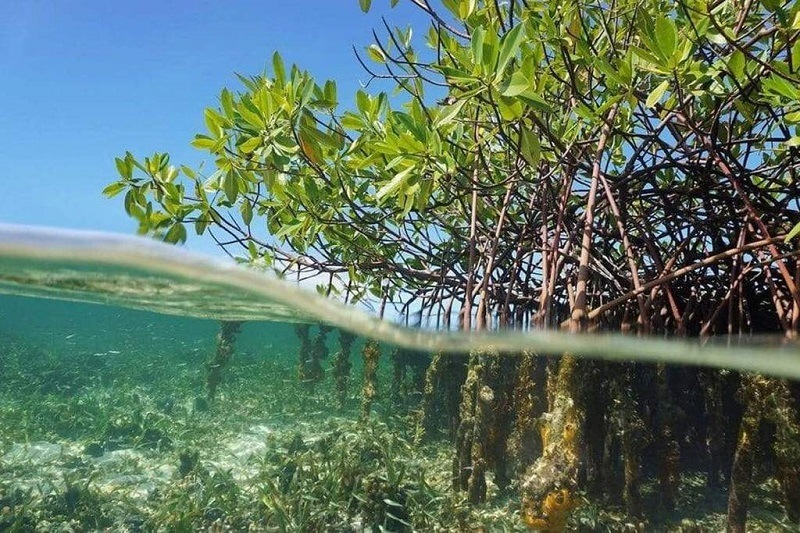
Mangroves fast facts: one of the world’s hardiest trees
WHAT ARE MANGROVES
If you have ever been on holiday by the shore somewhere tropical, you have likely encountered mangroves, however were you aware they are in reality trees and therefore are essential for helping the environment and safeguarding the world’s coastlines?
Mangroves are salt-tolerant trees (halophytes) and could be located in what is referred to as the intertidal zone – the place where the coastlines fulfill property in subtropical and tropical locations.
What is remarkable about these is that despite being trees they’ve adapted to living in polluted water, the changing sands of the planet’s oceans, as well as the low-oxygen surroundings of sand. Their twisted branches and roots jut up from the water and sand such as long, slim stilts and help protect the trees from the battering of the sea along with shifting wave, and their thick meaty leaves filter and purify the salt in the water.
Apart from their unbelievable adaptation to an environment known as unfit for trees of any sort, mangrove forests are a crucial for protecting coastlines, endangered and endangered species, people’s livelihoods, as well as helping fight climate shift!
WHERE ARE MANGROVES FOUND
Mangrove forests are more omnipresent than you may think. More than 100 subtropical and tropical countries are fortunate enough to possess mangroves in their coastlines, making an area the size of Portugal.
WANT TO SEE MANGROVES? GO TO INDONESIA!
Indonesia sports that the very mangrove policy on the planet, with at least two million hectares of mangrove woods throughout the nation’s coastlines (that is an area bigger than the nation of Belize). India is another country Where You Are Able to locate mangroves and you may also help encourage and protect mangrove forests in India.
THREATS TO MANGROVES
Annually about 1 percent of the world’s mangroves are dropped, largely as a result of individual practices such as overfishing, land use changes and coastal development, and agriculture. The United Nations Environmental Program estimates 25 percent of the reduction is brought on by fish farming.
At this speed, mangrove forests can disappear from Earth completely by the year 2100.
MANGROVES AS CARBON SINKS
It is well-known that trees consume enormous amounts of carbon, but mangroves are among the carbon rich woods in the tropics. Mangrove forests are capable of keeping 10 times more carbon than terrestrial ecosystems, placing them in the frontline of climate change.
FRIENDS OF FISH AND MUCH MORE
The complex root systems of mangroves result in the best habitat for many distinct species of aquatic lifestyle – from oysters and mussels, to mudskippers, lemon sharks, and manatees.
Beyond that which can be seen under the surface of the water, mangroves can also be crucial habitat for cranes, eagles, monkeys, as well as tigers!
GUARDIANS OF THE SHORELINE
Two undeniable indicators of climate change have been rising sea levels and increasingly intense storm strikes – and mangroves are a natural remedy to safeguard against the devastation caused by both of these phenomena.
Not only do they work as a barrier against rising tides and storm surge, but their dense and abundant roots hold the soil in place to stop degradation and erosion of the shoreline.
Side Effects: In 2018, Pakistan set a world record by placing over 1.1 million mangroves within a moment!
MANGROVES OFFER FOOD
If you like fish on your own dinner plate, then you can probably thank the mangroves. Either directly or indirectly, an estimated 80 percent of global fish catch is somehow dependent on mangrove woods. Whether they’re spawning grounds for sea jumping fish, or habitat for fish, or perhaps a significant supply of algae, fruit, and sodium, mangroves are a significant part the worldwide food supply.
MANGROVES FOR THE WIN
These distinctive trees are tremendously significant for the environment and the communities where they develop. And just as with any other shrub they require and deserve our protection.